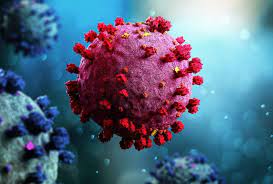Chal Prabhala is the coordinator of the AccessIBSA project, which campaigns for access to medicines in India, Brazil and South Africa. Vitor Ido is a program officer in the Health, Intellectual Property and Biodiversity Program at the South Centre in Geneva.
How can humanity prevent the next pandemic from being as disastrous as this one, in which as many as 15 million people have died? This past week, countries of the World Health Organization met in Geneva to begin debating a pandemic preparedness accord. A primary aim is to quickly develop new cures and vaccines, and the capacity to deliver them to everyone on the planet.
While no one yet knows what the WHO will ultimately recommend, it’s possible to predict one thing it will not: easing U.S. sanctions on Cuba’s homegrown biotech industry, which has the wherewithal to develop cutting-edge vaccines and treatments and share them with countries unable to afford first-world pharmaceutical companies’ premium prices.
This is a mistake.
During the covid-19 crisis, the United States had the opportunity to share its vaccine technology with the world, and its failure to do so prolonged the pandemic at home and abroad. In June 2022, a senior Biden administration official admitted that the omicron variant, which has been responsible for more than 300,000 deaths in the United States and more than 1.5 million globally, might never have emerged if the world been sufficiently vaccinated in 2021.
What is less known is that Cuba had the same opportunity to help vaccinate the world. The story of how Cuba was systematically blocked in its quest to make its own highly effective vaccines widely available offers crucial lessons.
The most recent chapter of this story began in summer 2021. The delta variant was ravaging India and making its way around the world. New vaccines offered hope, but the most under-resourced countries could not get them for love or money. While the United States and Europe donated doses, their efforts were hardly enough to solve the global problem. Crucially, these governments could not persuade the companies they had financed to share the technologies that could have enabled other countries to make vaccines on their own. In this grim landscape, it was astonishing to learn that Cuba had made two effective coronavirus vaccines from scratch, and then vowed to share its intellectual property worldwide.
“We realized we wouldn’t have the money to buy vaccines for our people, so we had to make our own, and we had to do it in a very short time,” Rolando Pérez Rodríguez, the director of science and innovation at BioCubaFarma, told us recently. In August 2021, one of BioCubaFarma’s laboratories also produced a booster. Both demonstrated more than 90 percent efficacy, on par with the leading Western vaccines.
The cost of developing these shots was $50 million, according to BioCubaFarma, far less than the billions invested by the U.S. government and the hundreds of millions invested by Germany in theirs.
Remarkably, Cuba eventually exported almost as many vaccine doses as it used at home, supplying Venezuela, Mexico, Vietnam, Syria, Nicaragua, Belarus and Iran. But while many countries in Africa and South Asia also desperately needed vaccines, they did not take advantage of Cuba’s offer.
To explain why they did not, we must go back to 1962, when the U.S. economic embargo against Cuba went into effect. Since then, escalating sanctions, which the United States has enforced by applying steady political and financial pressure, have isolated Cuba not just from America but also effectively the world. Stiff penalties for violating U.S. sanctions have ensured that institutions and governments routinely over-comply with them.
Cuba could have asked the WHO to certify its vaccines to make it easier for other countries to buy them with international aid. But it couldn’t afford to engage with the WHO after President Donald Trump not only reversed the mild sanctions reforms introduced by his predecessor, but also designated Cuba a state sponsor of terrorism. This has meant that, even in countries where it is legal to transact with Cuba, few banks are willing to risk hefty fines and criminal sanctions for being perceived as supporting terrorism.
Cuban-American relations are a political live wire, but new times call for new measures. The world has changed since 1962. The specter haunting it today is not communism but another global health emergency. There is little indication that the Biden administration will pressure U.S. pharmaceutical companies to share their medical inventions with the world. But President Biden could take a giant step toward global health security by rolling back the Trump administration’s draconian Cuba policies. If he went further by allowing for new exceptions in the U.S. sanctions regime, then Cuba could keep developing — and sharing — innovative vaccines and treatments for the world’s diseases.
More than three years on, it’s obvious that the world reacted poorly to the onset of the coronavirus, that lives were unnecessarily lost. But there is time now to prepare for the next pandemic, to set a course toward a more equitable distribution of medical technologies. The United States’ age-old embargo is hurting not just Cuba. It’s hurting the world. (The Washington Post)



































